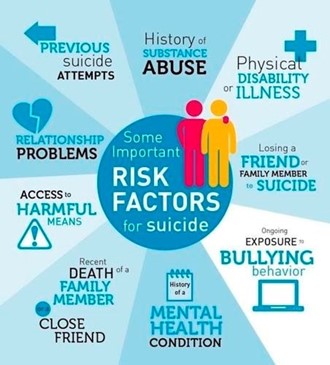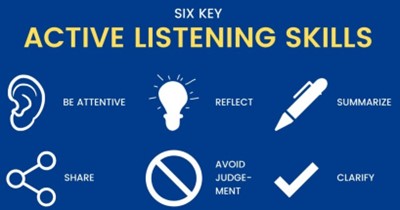A registered nurse is providing a community health education class about suicide prevention. Which of the following should the nurse identify as risk factors for suicide? (Select all that apply).
Substance abuse disorder
Schizophrenia
Age greater than 55 years Old
Female gender
Male gender
Bachelor’s degree
Previous suicide attempt.
Correct Answer : A,B,C,F,H
a. Substance abuse disorder
b. Schizophrenia
c. Age greater than 55 years old
f. Male gender
h. Previous suicide attempt.
Option a. Substance abuse disorder can increase the risk of suicide because it can exacerbate underlying mental health conditions and impair judgment.
Option b. Schizophrenia is a mental health condition that can increase the risk of suicide due to symptoms such as delusions and hallucinations.
Option c. Age greater than 55 years old is a risk factor for suicide because older adults may experience social isolation, chronic health conditions, and loss of independence.
Option f. Male gender is a risk factor for suicide because men are more likely to die by suicide than women. Option h. Previous suicide attempt is a strong predictor of future suicide attempts and completed suicides. Option d. Female gender is not a known risk factor for suicide.
Option e. Being currently married is not a known risk factor for suicide. Option g. Having a bachelor’s degree is not a known risk factor for suicide.

Nursing Test Bank
Naxlex Comprehensive Predictor Exams
Related Questions
Correct Answer is A
Explanation
This technique is known as reflective listening or active listening, and it involves paraphrasing what the patient has said to show that the nurse is actively listening and trying to understand the patient's feelings and thoughts. It demonstrates empathy and helps to build trust between the nurse and patient.
Option b is not effective because giving advice and opinion can convey a lack of interest in the patient's feelings and thoughts.
Option c is not ideal because it is a closed-ended question that may limit the patient's response.
Option d may also seem insincere and may not reflect a genuine interest in the patient's concerns.

Correct Answer is B
Explanation
Repetitive behaviors in individuals with OCD are often compulsions that are performed in an attempt to reduce anxiety or distress. These compulsions can take many forms, including repetitive actions such as applying and removing makeup. By engaging in these behaviors, the individual may feel a temporary reduction in anxiety or distress.
Whether you are a student looking to ace your exams or a practicing nurse seeking to enhance your expertise , our nursing education contents will empower you with the confidence and competence to make a difference in the lives of patients and become a respected leader in the healthcare field.
Visit Naxlex, invest in your future and unlock endless possibilities with our unparalleled nursing education contents today
Report Wrong Answer on the Current Question
Do you disagree with the answer? If yes, what is your expected answer? Explain.
Kindly be descriptive with the issue you are facing.
